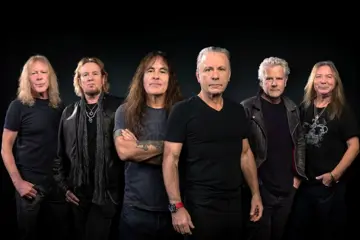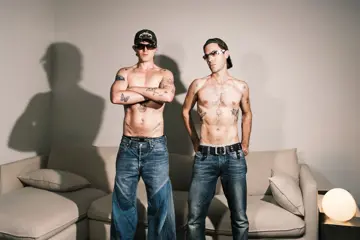The doors open and the audience enter a world of deep-dish dessert, pastel décor, and bedtime stories – but not the kind you want to read to children. A haze of smoke immediately engulfs the audience and makes it feel as if we’re stepping into a dreamscape with Joel Bray, creator, choreographer and sole performer, at its centre, lounging on a cloud of cotton candy wearing nothing but small, glittering hotpants.
Each scene unfolds like a chapter in a book or a photo in a family album and is served up by Bray in a heady salty-sweet combination that leaves the audience laughing or with an uncomfortable tang on the tip of their tongues. Monologues are interspersed throughout the performance, often representing a change in narrative direction. Tension creeps in during these moments of dialogue when piano music plays and Bray performs slow, purposeful and taunt choreography. In one scene, Bray performs sharp, stilted movements that look almost painful, as if he is a puppet on a string, trying to untangle himself from the grip of his puppet-master.
Bray is clever with his scene changes, incorporating clean-up, costume changes and the position of the audience into the overarching narrative. The audience moves with Bray from corner to corner, scattering as he dances into and through the crowd. Audience immersion is a vital component to Daddy. The audience are invited to interact with Bray and stage props, and Bray selects people to perform with him, directing them as required. If Bray is the star of the show, the audience are the extras that help set the scene.
The existentialism of the performance – the uncertainty of life, love and one’s purpose –makes the narrative both deeply personal and widely accessible to a modern audience. Bray makes a soft social comment on the disconnect people face from each other in this modern world without blaming social media and technology as many social commentators do. In fact, Bray encourages the use of social media in the performance. What he does, however, is use these contemporary tools to bring people into the here and now and give them permission to let loose.
Don't miss a beat with our FREE daily newsletter
Overall, Daddy is a confrontational yet cathartic performance where life, love, culture and identity are laid bare – literally and metaphorically. A perfect reminder of how fleeting and messy real life actually is.















